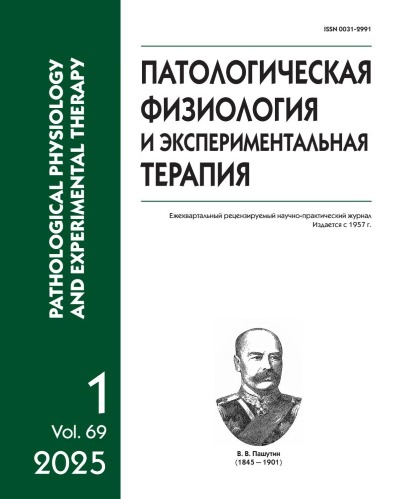Microbial metabolome of the intestine: Current data and prospects for practical application
DOI:
https://doi.org/10.48612/pfiet/0031-2991.2025.01.102-110Keywords:
intestinal microbial metabolome, short-chain fatty acids, aromatic amino acids, biomarkers of metabolic disorders, metabolic fingerprinting, synbioticsAbstract
Studies of the last decade have shown the direct involvement of the intestinal microbiome and its metabolites in the regulation of vital processes in the human body. The microbial metabolome directly influences the central human metabolism (catabolism and anabolism), carbohydrate and lipid metabolism. The best studied components of the intestinal microbial metabolome are short-chain fatty acids and metabolic products of aromatic amino acids produced both by strict anaerobes and facultative anaerobic intestinal microorganisms. It was shown that the intestinal microbial metabolome is directly involved in the synthesis of secondary fatty acids. Also, it takes part in neuroendocrine interactions. The available data warrant reviewing the approaches to diagnostics and prevention of a number of pathologies resulting from metabolic disorders. The search for microbial metabolites that could be used as biomarkers to clarify the diagnosis or stages of the disease is under way. For this purpose, it is proposed to develop individual profiles of clinically significant human microbial metabolites. The metabolome studies are promising for the creation of new oral drugs that would minimize the possible interference of the intestinal microflora. For the same purposes, it seems realistic to create synbiotics taking into account individual characteristics of the human body.Downloads
Published
2025-03-25
Issue
Section
Reviews
How to Cite
[1]
2025. Microbial metabolome of the intestine: Current data and prospects for practical application. Patologicheskaya Fiziologiya i Eksperimental’naya Terapiya (Pathological physiology and experimental therapy). 69, 1 (Mar. 2025), 102–110. DOI:https://doi.org/10.48612/pfiet/0031-2991.2025.01.102-110.






